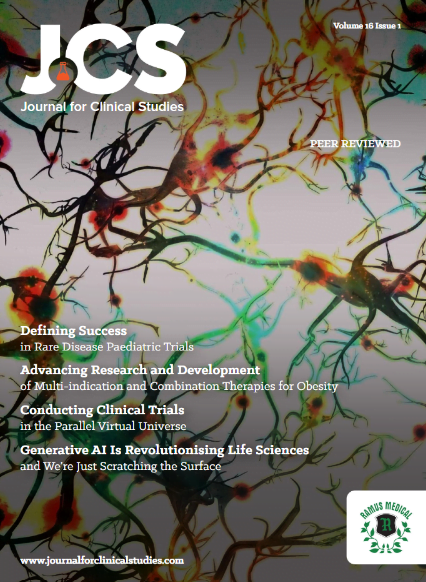Actor Robin Williams struggled with Lewy body dementia near the end of his life, but he didn’t know it. The famous funnyman’s experience isn’t that different from those of many people with the condition—it’s the second most common, but also most misdiagnosed, type of dementia.
To help the medical community better understand the disease, Acadia Pharmaceuticals partnered with the Lewy Body Dementia Association (LBDA) to create a medical adaptation of the documentary “Robin’s Wish,” released this year about the actor and his unwitting struggle. Williams had been misdiagnosed with Parkinson’s disease shortly before he died in 2014, but doctors later discovered Lewy body during his autopsy.
The Acadia movie, called “Spark – Robin Williams and his Battle with Lewy Body Dementia,” goes beyond Williams’ personal story to talk about Lewy body’s neurobiology and symptoms to help educate the medical community.
Therapies requiring high volume injections are becoming more common across a broad range of therapeutic areas. For the growing category of injectables, multiple advances in pharmaceutical and device technologies play a role in achieving desired patient outcomes in adherence, safety and quality of life. This webinar will explore why adherence, safety and quality of life are important for patients, and how these key enablers contribute towards positive outcomes. We will also discuss existing challenges, such as drug development, regulatory, patient accessibility, and how device technologies can further improve patient outcomes.
For the launch, Acadia and LBDA hosted a virtual conference to discuss the problems of dementia-related psychosis. Featuring experts in the field, along with Acadia’s Chief Medical Officer Ponni Subbiah, M.D., viewers heard from one couple, Cynthia and Don, married 45 years, talking about how they have managed Don’s dementia-related psychosis.
Plans over the next six months include a tie into LBDA’s network and hosting dozens of events around the country to show the film and hold discussions with experts and families.
“Our goal is for the film to be a key element at institutions for community and/or professional awareness, education, and support to those affected by Lewy body dementia,” Bill Keller, Acadia’s executive director, patient advocacy and industry relations, said via email.
There are approximately 8 million people living with dementia in the U.S., but only half are properly diagnosed, Acadia said in its press release. Lewy body dementia accounts for about 1.4 million people. Along with cognitive decline, people with Lewy body dementia suffer from hallucinations and delusions.
“Central nervous system disorder conditions have been refractory for a long time to potential therapies, and so particularly when it comes to mood disorders, have been notoriously challenging to treat,” neurology specialist Erin Foff, M.D., said during the October event, noting that clinical trials “have had very high failure rates.”
There is currently no drug approved to treat psychosis associated with Lewy body dementia. However, in July, the FDA accepted Acadia’s supplemental NDA to review Nuplazid for the treatment of hallucinations and delusions associated with dementia-related psychosis. Nuplazid is currently approved to treat hallucinations and delusions associated with Parkinson’s disease psychosis.















